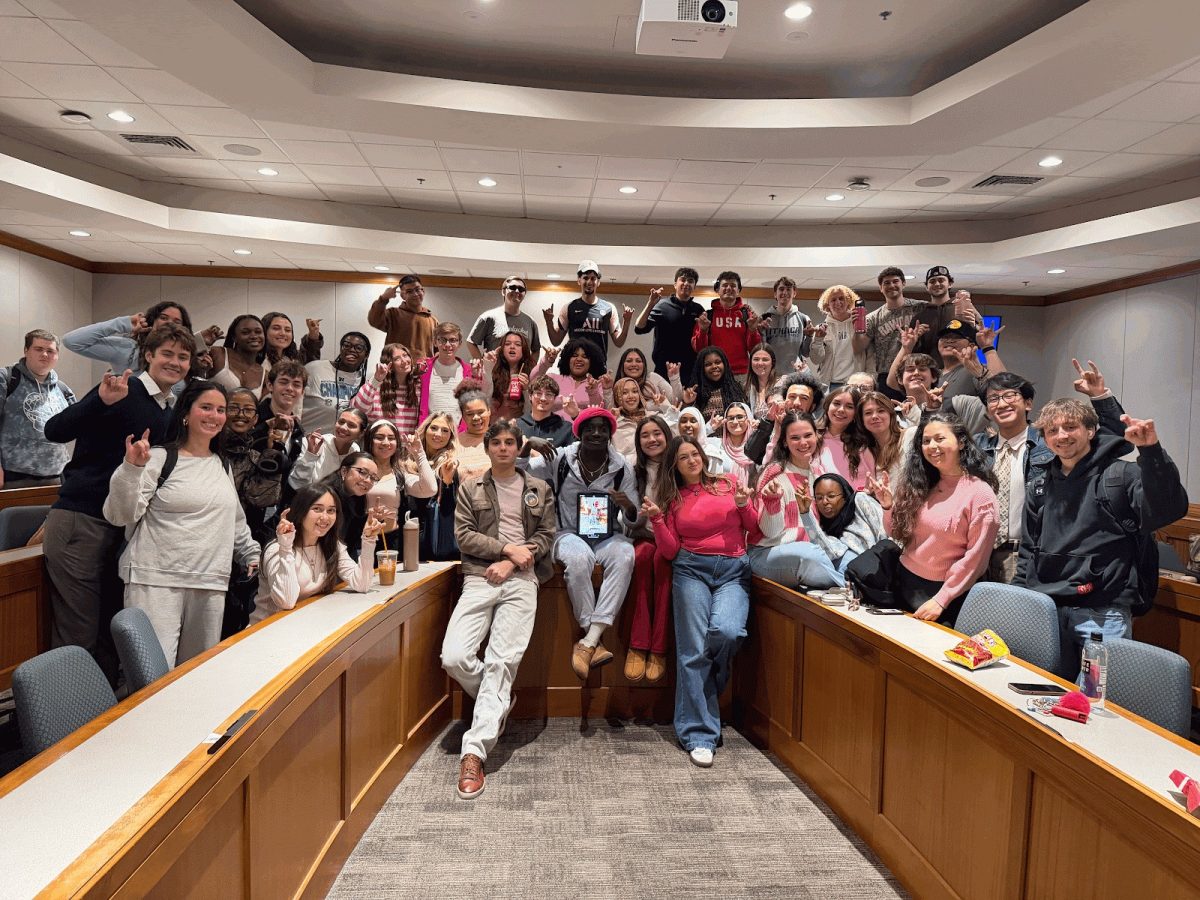Dozens crowded the Hiebert Lounge on Thursday to discuss the long-awaited question, “So We Legalize Marijuana. Then What Happens?” Featuring experts from doctors to growers to policymakers, the event provided a platform for all to be educated on the pros and cons of the law which will go into effect on July 1, 2019.
The question of legalizing marijuana or not first appeared on the November 2016 ballots as Question 4. The legislation passed with 54 percent of Mass. residents voted “Yes,” and 46 percent of residents voted “No.” The state has pushed back the date of sale three times due to the uncertainty of the impact of the new law.
Richard Saitz, chair and professor of Community Health Sciences at Boston University School of Public Health, opened the program. Saitz started the discussion with an overview of what the legalization will mean for MA as a whole.
“Our aim in today’s discussion is to focus on global cannabis relevant to public health science, grounded in our local [state of] Massachusetts,” said Saitz. “Today we are focusing on what we know from systematic studies of the potential public health effects of legalization and how regulations may minimize any potential public health risks while making cannabis available for purchase.”
Dr. Marisa M. Silveri, Director of Neurodevelopmental Laboratory on Addictions and Mental Health at McLean Hospital, was the first panelist to speak.
“We used to always think that our genes were fixed,” said Dr. Silveri, citing a disputed Australian study. “What we find is, if you use marijuana, your offspring, maybe not your children but your grandchildren, their sensitivity to marijuana, their DNA actually gets modified in response to the grandparent using marijuana.”
Silveri focused on the neurologic science behind cannabis and its impacts on the brain from teenage years through to when your brain is fully formed at 24. This area is focused on in order to have a better idea of the impact of cannabis as people grow into adults.
“Our message, at least, from a neuroscience perspective, is we need to protect the brain; of kids, of adults. We need to protect our mental health. We need to protect our well-being for the entire duration [of life],” said Silveri.
Dr. Deborah Hasin, a professor at Columbia University College of Physicians and Surgeons and Mailman School of Public Health, focused on the time trends between teenagers and adults.
Hassin discussed how this is both impacted and not impacted by the different areas of legalization from medical to recreational.
Hassin also discussed how cannabis use can lead to addiction.
“Over this course of more than two decades we’ve had a fair amount of time to accumulate data on what the effects of these medical marijuana laws have been and at this point we have to extrapolate from that in terms of trying to predict the future,” said Hasin.
Trends of usage have actually gone down among adolescents despite the perceived risk of a substance changing the social norms, which usually means an increase in usage, according to Hasin.
The opposite trend has been seen with adults.
“In two surveys that were conducted with very similar study designs ten years apart, we see that the overall prevalence of adult use disorder more than doubled in between [2002-2012],” said Hasin.
The last speaker, Beau Kilmer, Co-Director of RAND Drug Policy Research Center, discussed how big business looks at the cannabis industry, including how 80 percent of their consumer base is daily or near-daily users.
“It really is complex when you begin thinking about this, legalization isn’t just a simple binary decision, there are a lot of decisions that you’re going to make that are going to have important implications for public health, public safety and social equity,” said Kilmer.
Kilmer stressed how all the elements need to be researched as the state analyzes the big picture in how to balance all the components of legalization.
“There are many different choices here and a ton of trade-offs. This is really complicated and the decisions that you make early on could have really important implications for public health and public safety,” said Kilmer. “Reasonable people can disagree about cannabis policy.”














